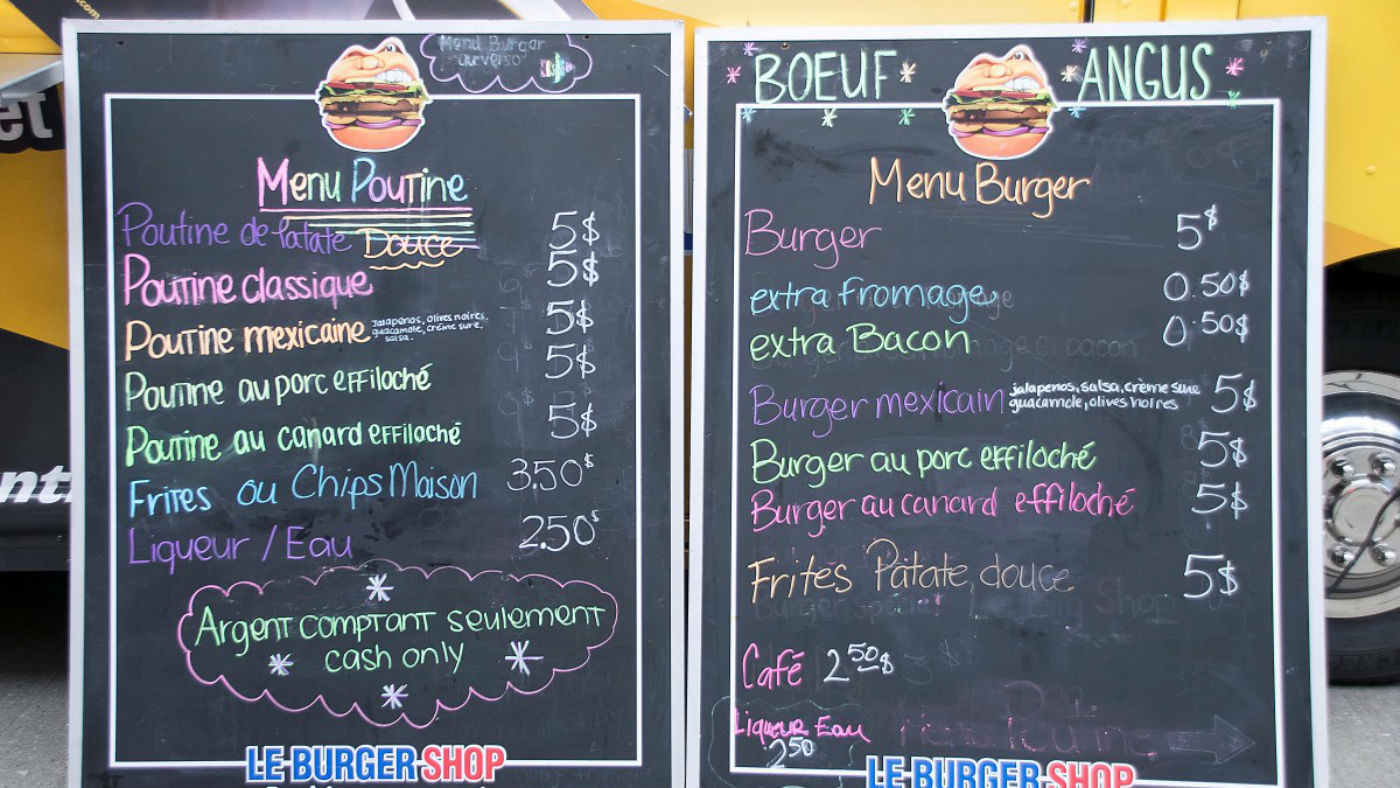Quebec’s ‘language police’ release list of permitted English words
Au revoir, coquetels and balle-molle - hello cocktails and softball

A free daily email with the biggest news stories of the day – and the best features from TheWeek.com
You are now subscribed
Your newsletter sign-up was successful
Quebec’s cafes and restaurants will now be allowed to offer their patrons “grilled cheese” sandwiches and “cocktails”, after the region’s French language watchdog lifted their ban on some English words.
The Office québécois de la langue française (OQLF), a government body which employs 250 people, has also given the nod to words including softball, baby boom and toast, the Globe and Mail reports.
Despite its reputation as a fusty stickler for “pure” French, the OQLF announced the newly acceptable words with remarkable sang-froid.
The Week
Escape your echo chamber. Get the facts behind the news, plus analysis from multiple perspectives.

Sign up for The Week's Free Newsletters
From our morning news briefing to a weekly Good News Newsletter, get the best of The Week delivered directly to your inbox.
From our morning news briefing to a weekly Good News Newsletter, get the best of The Week delivered directly to your inbox.
Spokesman Jean-Pierre Le Blanc went so far as to describe the anglicisms as "part of our linguistic enrichment” - an astonishing concession for those familiar with Quebec’s sensitive linguistic history.
French speakers are aware of their minority status - only around one in five Canadians speaks French as a first language - and have been fiercely protective of their language’s equal status under the law.
French must be given equal precedence with English for all official government business, while in majority-francophone Quebec everything from product labels to advertising posters must be displayed in French as well as English - and the OQLF is serious when it comes to enforcing the rules.
In 2013, a Montreal brasserie owner told Canadian broadcaster CBC that language inspectors had told him to cover an “on/off” label on a hot water switch because it did not include a French translation.
A free daily email with the biggest news stories of the day – and the best features from TheWeek.com
“When a first layer of opaque tape failed to cover up the English words, Holder said he was told to add a second layer of tape,” the broadcaster reports.
Excessive use of foreign terms - from English or other languages - has also attracted the ire of the OQLF.
In 2013, an Italian restaurant received a letter from a OQLF inspector ordering them to stop serving “pasta” and “antipasti” and start serving “pates” and “hors d’oeuvres”.
“Pastagate”, as it was dubbed in the Canadian press, generated a public outcry against the OQLF’s heavy-handed attitude, with some accusing the body of abusing its powers.
The OQLF blamed the incident on an “excess of zeal” on the inspector’s part and later relaxed its rules to permit foreign culinary terms.
This new permissiveness when it comes to “cocktails” and “softball” doesn’t mean the OQLF is giving up its battle against English neologisms.
Au contraire, says Globe and Mail, the body “is currently trying to get teenagers to refer to selfies as ‘égoportraits’ and to ghosting… as ‘fantomisation’”. Who knows, it might just catch on...
-
 How the FCC’s ‘equal time’ rule works
How the FCC’s ‘equal time’ rule worksIn the Spotlight The law is at the heart of the Colbert-CBS conflict
-
 What is the endgame in the DHS shutdown?
What is the endgame in the DHS shutdown?Today’s Big Question Democrats want to rein in ICE’s immigration crackdown
-
 ‘Poor time management isn’t just an inconvenience’
‘Poor time management isn’t just an inconvenience’Instant Opinion Opinion, comment and editorials of the day
-
 Greenland’s capital becomes ground zero for the country’s diplomatic straits
Greenland’s capital becomes ground zero for the country’s diplomatic straitsIN THE SPOTLIGHT A flurry of new consular activity in Nuuk shows how important Greenland has become to Europeans’ anxiety about American imperialism
-
 Epstein files topple law CEO, roil UK government
Epstein files topple law CEO, roil UK governmentSpeed Read Peter Mandelson, Britain’s former ambassador to the US, is caught up in the scandal
-
 Iran and US prepare to meet after skirmishes
Iran and US prepare to meet after skirmishesSpeed Read The incident comes amid heightened tensions in the Middle East
-
 Israel retrieves final hostage’s body from Gaza
Israel retrieves final hostage’s body from GazaSpeed Read The 24-year-old police officer was killed during the initial Hamas attack
-
 China’s Xi targets top general in growing purge
China’s Xi targets top general in growing purgeSpeed Read Zhang Youxia is being investigated over ‘grave violations’ of the law
-
 Panama and Canada are negotiating over a crucial copper mine
Panama and Canada are negotiating over a crucial copper mineIn the Spotlight Panama is set to make a final decision on the mine this summer
-
 Why Greenland’s natural resources are nearly impossible to mine
Why Greenland’s natural resources are nearly impossible to mineThe Explainer The country’s natural landscape makes the task extremely difficult
-
 Iran cuts internet as protests escalate
Iran cuts internet as protests escalateSpeed Reada Government buildings across the country have been set on fire